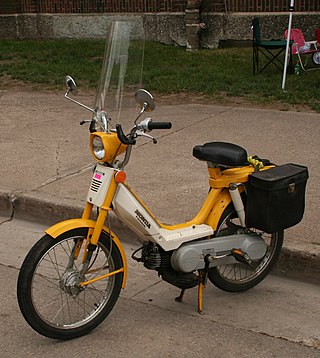
A moped is a type of small motorcycle, generally having a less stringent licensing requirement than full motorcycles or automobiles. Historically, the term exclusively meant a similar vehicle with both bicycle pedals and a motorcycle engine. Mopeds typically travel only slightly faster than bicycles on public roads.

Reliant Motor Company was a British car manufacturer based in Tamworth, Staffordshire, England. It was founded in 1935 and ended car production in 2002, the company had been known as "Reliant Motor Company" until the 1990s when it became "Reliant Motors" and then finally became "Reliant Cars LTD" after production had ended of the Robin as the company was restructured to be a car import business. It is now a dormant company and the only entity left is a separate parts company created called "Reliant Partsworld" which produces parts for Reliant vehicles.
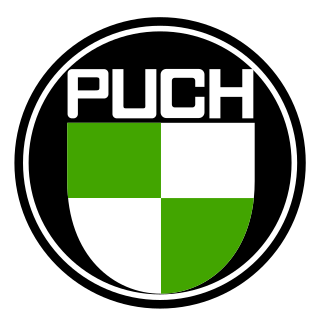
Puch is a manufacturing company located in Graz, Styria, Austria. The company was founded in 1899 by the industrialist Johann Puch and produced automobiles, bicycles, mopeds, and motorcycles. It was a subsidiary of the large Steyr-Daimler-Puch conglomerate.

NSU Motorenwerke AG, or NSU, was a German manufacturer of automobiles, motorcycles and pedal cycles, founded in 1873. Acquired by Volkswagen Group in 1969, VW merged NSU with Auto Union, creating Audi NSU Auto Union AG, ultimately Audi. The NSU name is an abbreviation of "Neckarsulm Strickmaschinen Union".

Zündapp was a major German motorcycle manufacturer founded in 1917 in Nuremberg by Fritz Neumeyer, together with the Friedrich Krupp AG and the machine tool manufacturer Thiel under the name "Zünder- und Apparatebau G.m.b.H." as a producer of detonators. In 1919, as the demand for weapons parts declined after World War I, Neumeyer became the sole proprietor of the company, and two years later he diversified into the construction of motorcycles.
Vehicle size classes are series of ratings assigned to different segments of automotive vehicles for the purposes of vehicle emissions control and fuel economy calculation. Various methods are used to classify vehicles; in North America, passenger vehicles are classified by total interior capacity while trucks are classified by gross vehicle weight rating (GVWR). Vehicle segments in the European Union use linear measurements to describe size. Asian vehicle classifications are a combination of dimensions and engine displacement.

The Reliant Robin is a small three-wheeled car produced by the Reliant Motor Company in Tamworth, England. It was offered in several versions over a period of 30 years. It is the second-most popular fibreglass car in history after the Chevrolet Corvette, with Reliant being the second-biggest British car manufacturer for a time.
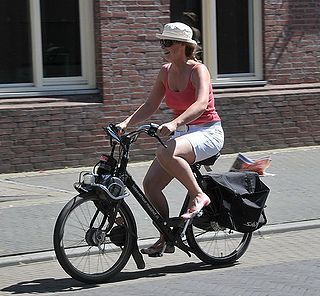
A motorized bicycle is a bicycle with an attached motor or engine and transmission used either to power the vehicle unassisted, or to assist with pedalling. Since it sometimes retains both pedals and a discrete connected drive for rider-powered propulsion, the motorized bicycle is in technical terms a true bicycle, albeit a power-assisted one. Typically they are incapable of speeds above 52 km/h (32 mph); however, in recent years larger motors have been built, allowing bikes to reach speeds of upwards of 113 km/h.
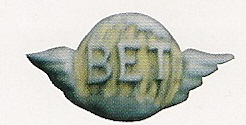
Biotechnia Ellinikon Trikyklon, or BET, was a small vehicle manufacturer founded in Athens by Petros Konstantinou. It was one of several manufacturers - the first appearing in the early 1940s - that converted BMW or other motorcycles into light utility three-wheelers. In 1965 it entirely designed and built a small five-seat passenger car with a BMW 125cc motorcycle engine. Although the type was certified, only one was built due to problems in availability of parts for further production. Following this design, three-wheeled truck models were developed and produced. A second passenger car model was designed and introduced in 1973, known as model 500, with a Fiat 500cc engine. With metal body, seating up to five passengers and featuring very good road handling, it was a rather advanced three-wheeler for its time. It was certified for production and 15 were built, of which one survives to this date in excellent condition. There were even talks with a South African company involving plans for exports or even transfer of production to that country, but they were never realized. The company ceased production in 1975.
Mego (ΜΕΓΚΟ) was a Greek light vehicle manufacturer, based in Trikala. Its first products, launched in 1947, were utility tricycles. In 1951, it began manufacturing motorized utility tricycles with 50–100cc engines and an unconventional design in which the solo wheel was located at the rear.

STYL KAR was named after its founder, the engineer Stylianos Karakatsanis. Its entire history is representative of many Greek companies who were engaged in the construction of simple utility vehicles.

Alta was a Greek manufacturer of light and heavier three-wheeler trucks, motorcycles and passenger cars. Production of motorcycles and three-wheeler trucks with Sachs 50cc engines started in its first factory in Athens in 1962. The 50S motorcycle model was known for its reliability. In 1967 it designed and developed model A700, a heavier three-wheel truck with 2-cylinder BMW 35 hp engine and a payload of 800 kg. The truck, featuring a pleasant design and high reliability became one of the most successful vehicles of its kind in Greece. In 1968 Alta introduced a three-wheel passenger car, model A200. Powered by a Heinkel 200cc engine, the car was based on the German Fuldamobil, but with Alta's own body design. The company moved production to a new, larger factory in Elefsis where it operated until 1978.

Attica was a brand name of vehicles produced by Bioplastic S.A., a company created in Moschato, Athens by Georgios Dimitriadis, a figure in Greek automotive history.
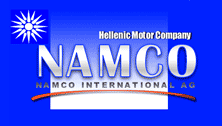
NAMCO is a Greek vehicle manufacturer. It was founded in 1972 by the Kontogouris brothers.
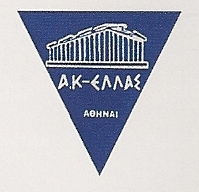
AK Hellas was a Greek manufacturer of light trucks and other metal products. It designed and produced two basic types of vehicles - all three-wheelers with 50cc engines, taking advantage of a favorable classification as "motorbikes" according to Greek law.
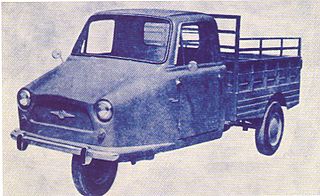
Motoemil was a Greek truck manufacturer based in Thessaloniki. It was named after Emilios Antoniades who started his business, together with his brother Konstantinos, by constructing crude-made trucks assembled from motorcycle and automobile parts. By the mid-1960s, like other similar Greek manufacturers, they were already developing and building complete "automobile" three-wheeler trucks. Motoemil was one of the first of its kind in Northern Greece and soon became the largest in that region, its products sold throughout the country. The first models used 1200cc Volkswagen air-cooled engines. A completely redesigned, more modern-looking model was introduced in 1970, using a German Ford engine.

Rieju is a Spanish manufacturer of mopeds and motorcycles from Spain. It is based in Figueres. They specialise in small-displacement motorcycles using Minarelli engines. Their products are available in almost all European countries.

A scooter is a motorcycle with an underbone or step-through frame, a seat, a transmission that shifts without the operator having to operate a clutch lever, a platform for their feet, and with a method of operation that emphasizes comfort and fuel economy. Elements of scooter design were present in some of the earliest motorcycles, and motor scooters have been made since at least 1914. More recently, scooters have evolved to include scooters exceeding 250cc classified as Maxi-scooters.
The legal definition of a motorcycle for the purposes of registration, taxation and rider licensing in most countries is a powered two-wheel motor vehicle. Most countries distinguish between mopeds up to 49 cc and the more powerful, larger, vehicles known as motorcycles, including scooter type motorcycles. Many jurisdictions include some forms of three-wheelers as motorcycles.
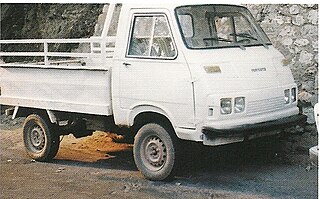
Record A.E.B.E. was the name of a Greek company producing agricultural machinery and vehicles, founded in Heraklion, Crete in 1957 and dissolved in 1999. Its products have included walking tractors, a family of characteristic Greek three-wheel vehicles combining truck and tractor functions, "proper" tractors and four-wheel trucks ; mechanical equipment like clutches and gearboxes for use in its vehicles were also produced. Its main market was Greece, although some of its walking tractors were also exported. Annual vehicle production in the late 1970s and early 1980s averaged 500 units.
























